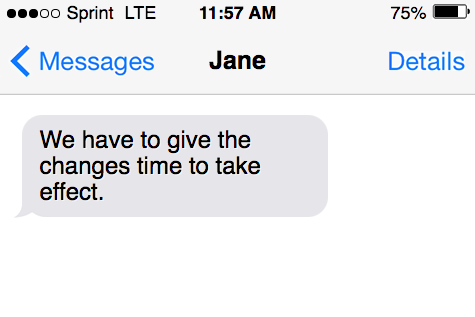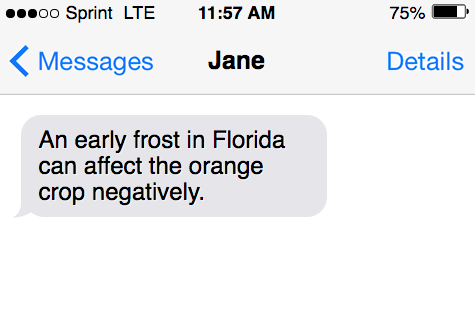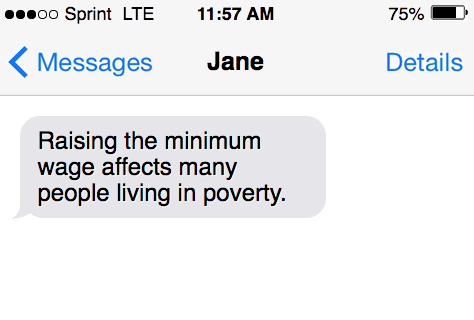Learn how to use both affect and effect, and never mix them up again in writing!
Luckily, it’s not that confusing once you take the time to figure what each word means, and their roles in speech and grammar, (which is generally a good rule of thumb for using words correctly).
What’s the difference between affect and effect?
If two words have earned the superlative for most commonly confused words in the English language, it’s effect and affect.
Not only do the two words sound alike, they also share similar meanings and their spellings only differ by one letter. It’s as though the words affect and effect were destined to be mistaken for one another.

Unlike other homophones, (which are words that sound the same but have distinct meanings and spelling), affect and effect both describe a similar concept and idea.
So, what is the difference between affect and effect? And how is it clear which is the right word to use in a sentence?
The basic difference between the two is that affect is ordinarily a verb, andeffect is usually a noun.

A key distinction to identify which is the correct word in the relevant context is to remember that action words, also known as verbs, describe actions, (oftentimes as they are happening in the moment, or in the present tense).
In parts of speech, verbs express a relationship between the parts of the sentence i.e., some thing or act is happening to the subject sentence or noun. In the case of affect, the word means to have ‘an influence or impact’ on something.
| Word | Definition |
| Affect (verb) /əˈfekt/ | have an effect on; make a difference to. |
| Effect (noun) /əˈfekt/ | a change which is a result or consequence of an action or other cause. |
The verb affect
While affect does have a noun form, but it’s most often used as a verb.
The word affect has two meanings as a verb: the first meaning of the word is “to have an impact on,” or something capable of “producing change.”

The second meaning of affect describes being moved or touched emotionally, “To touch the feelings of (someone); move emotionally; make a difference to.” or “to act on and cause a change in (someone or something.)” For example, “His endless sarcasm had a flat affect on my mood and overall enjoyment of the evening.”
The present participle of affect is affecting, whereas both the past tense and past participle are affected.

For example, in the present participle: “The others didn’t notice him, perhaps because of the strange issues affecting magic.”
Past tense and past tense participle of affect in a sentence:
- She wiped her face, affected by his words.
- She sat and began playing with the buttons to see how they affected the holograms.
- Yet he didn’t seem too affected by a life of pain, exclusion, and conflict.
- There was no sign Ne’Rin’s betrayal affected him at all.
- In the log-glass the time is measured by running sand, which, however, is apt to be affected by the humidity of the atmosphere.
(Example sentences are from dictionary.com)
example Sentence ‘affect’
The following sentences all demonstrate the correct use of the verb ‘affect’ in a sentence.
- Smoking tobacco can permanently affect your lungs, and leads to cancer.
- An early frost in Florida can affect the orange crop negatively.
- Hugs can affect a person’s immune systemin a positive way.
- A new discovery can affect a scientific theory.
- Failing a test can affect someone’s mood, especially if they’re concerned with getting high grades.
- Smoking tobacco can adversely affect your lungs and blood flow.
- The couple was trying not to let their emotions affect their decision on whether to sell their house or not.
- Raising the minimum wage affects many people living in poverty.
- How much a student studies will affect his grade point average.
- Poverty can affect anyone, regardless of age, race, gender or social background.
(Example sentences are inspired from dictionary.com)
The past tense and past participle form of the verb affect is affected, as in. See the following sentences using the past tense affected.
The following sentences all illustrate the correct use of the word ‘affected’ in a sentence.
- My first grade school teacher affected my emotional response towards the public school system and education overall.
- The cold weather affected the crops.
- The music deeply affected him
- The sugary foods that Donna ate affected her weight
- Many areas have been affected by the flooding with some houses being completely covered in water.
- The flowers seem to be affected by the heat as they have dried up and wilted as temperatures have risen.
- Again, the temperature of the air is affected by radiation from the soil; and radiation differs in various soils.
- College graduates were affected by the temporary contract workers flooding the job market.
- Those living in areas below sea level were most affected by the tsunami.
- There are many charities starting up to help families affected by the catastrophic event.
(Example sentences are inspired from dictionary.com)
The noun effect
The word effect is mostly used as a noun and object word that refers to an outcome of an event, occurrence, or decision. As in, for something to have a cause and effect, the latter word in the context means ‘outcome,’ ‘consequence,’ or ‘result.’

The Brittanica Dictionary corroborates the meaning just described, and defines the word’s meaning as “a change that results when something is done or happens.”
In other words, when something has changed or altered something else, it can be said to have had an effect.
For example, to have a “positive effect,” or “negative effect,” on someone or something is a common phrase used in English both in writing and conversation.
Similarly, to have had a negative effect is also a common way to describe something as producing a bad or negative change on a person, place, state, thing or concept.
Examples of Sentences using effect as a noun
The following sentences all show the proper use of the word ‘effect’ in a sentence.
- The prescribed medication had a positive effect on the patient’s symptoms.
- We have to give the changes time to take effect.
- All this rain will effect a great harvest.
- The effects of climate change can be felt worldwide.
- The new law prohibiting texting while driving will go into effect tomorrow.
- A good night’s sleep has a positive effect on your day.
- Technology has had a huge effect on our entire world and lives.
- The new manager is bound to effect positive changes in the office
- News broadcasts can have a huge effect on public opinion.
- The special effects in movies today are aided by computers.
(Example sentences are inspired from dictionary.com)
Are there any exceptions?
Sometimes, affect is used in its noun form, and effect can be used as a verb. While this is less common in writing and speech, it’s worth noting since each word’s independent meaning changes slightly in their noun and verb forms.
The noun affect refers to a person’s demeanour, or a person’s facial expressions, also known as their affectation. As in, “The young man’s facial expressions had a strange affect.”
Affectation carries a slightly more negative connotation, and means “speech or conduct not natural to oneself : an unnatural form of behavior meant especially to impress others.” (Merriam-Webster, affectation.)

For example, a person’s affectation describes “an observable emotional response,” and is commonly used in psychology, “Her affect remained the same despite everyone around her appearing to be in despair.” See the following sentences using affectation as a noun as examples:
The following sentences all illustrate the correct use of the word ‘affectation’ in a sentence.
- Theirs was the affectation of respectability; if indeed there be an affectation so honorable.
- There is a curious affectation about his style – a falsetto note – which, notwithstanding all his efforts to please, is often irritating to the reader.
- She’s beautiful, truthful, and hilarious, without vanity or affectation, exceptionally clever.
- In manner he was simple, direct, void of the least affectation, and entirely free from awkwardness, oddity or eccentricity.
- Juan, it’s not his name, yet to keep calling him the Unconscious Argentinean would be a silly affectation.
(Example sentences are inspired from dictionary.com)
The verb version of effect is also less frequently seen, though when it does appear in writing it’s typically followed by the word change. For example, to “effect change,” is to “cause (something) to happen; or bring about.”
Again, this is similar to the meaning of effect as a noun, but the distinction is that in its verb form it describes a thing as making something else happen, rather that as a noun where it describes an outcome or end state.
The sentences below lay out the correct way to use the verb effect in a sentence.
Take a look at examples of sentences using the word ‘effect’ as a verb:
- We can effect a new and better society through reform.
- A dark paint color will have the effect of making the room seem smaller
- He effected his escape with knotted bedsheets.
- The temperature reversal effected a major slowdown in the bacterial growth rate.
- Congress effected changes to the law.
The plural form of the noun is effects, with the added ‘s‘ at the end. This is correctly used to refer to “special effects,” in a movie or film. The plural of effects has the same meaning, and just refers to more in count or quantity of the particular effect being discussed or referenced.

The following sentences use the plural form of effect, as in effects:
- The experiment studied the effects of sleep deprivation on college students.
- The new rules had many unforeseen effects on contracts.
- A broad spectrum of lighting effects allows them to offer the most competitive value for lighting in the industry.
- These distance effects were not understood at the time, or else were referred simply to ordinary induction.
- The Lombard campaign had produced important effects throughout the rest of Italy.
The present participle of effect is effecting. See the following sentences using the past participle of effect, effecting:
- My view is that not only is it possible, but that the theatre was one of the most prominent influences in effecting such changes.
- She may have the courage to give voice to this experience and through voice assert agency, effecting a change in the behaviour of others
- We compared the efficiency of foraging habit of one of the major pollinators in effecting pollination.
- But, especially as the century wore on, all sorts of other agents were implicated in effecting the changes under discussion.
- The language is built around a pure, higher order functional core which is augmented with side effecting capabilities.
(Example sentences are from dictionary.com)

When to use effect vs affect: 3 quick tricks to remember affect vs effect in a sentence
- A mnemonic (to the rescue!) Affect is a verb, which describes an action. A is for = Action. Effect describes an End Result = E (effect) is for End result.
- In case the mnemonic mentioned earlier wasn’t enough: Another quick tip on how to remember which words is correct is to think of the acronym or word RAVEN:
- R = Remember
A = Affect is a
V = Verb
E = Effect is a
N = Noun
- R = Remember
- If the above mentioned fail, another easy way to identify which is the correct word in the sentence is to note that when the word effect is used as a noun, it almost always follows these words: the, any, an, into, on, take, or.The verb affect does not follow the above words in a sentence.
Origin of the word effect
The word effect derives from the Old French, effet, “execution or completion (of an act).”
Origin of the word Affect
The word affect derives from the Latin, affectus, meaning “disposition, mood, state of mind or body produced by some external influence.” Its noun form also derives from the same Latin word.
Synonyms for affect
A list of words that share a similar meaning with the word affect:
- Impact
- Impress
- Influence
- Guide
- Sway
- Touch
- Alter
- Change
- Modify
Synonyms for effect
A list of words that have a similar meaning with the word effect:
- Result
- Consequence
- Upshot
- Outcome
- Conclusion
- Reaction
- End result
Lesson in Review
If you’re describing an action, choose affect.
If you’re describing the outcome or result of an event or decision, choose effect.
Both words can be used as a verb or a noun, but affect is primarily used in sentences as a verb, whereas the word effect is most often a noun.
There are exceptions, (which were mentioned previously), since affect is sometimes used as a noun form, but by and large, the above use is often the correct way to differentiate between affect and effect.
Want to learn more grammar rules?
This is the ‘write‘ place to find out! Read our grammar guides on the difference between ok vs okay.
Curious to know whether it’s fullproof, full proof or fullproof? What about beckon call or beck and call? Learn the difference and master English prose.
Glossary
- Definition of affect: merriam-webster.com/dictionary/affect
- Definition of effect: merriam-webster.com/dictionary/effect
- Effect as a verb meaning: merriam-webster.com/dictionary/effect
- Affect as a noun meaning: dictionary.com/e/affect-vs-effect/
- Effect plural form noun: dictionary.com/e/affect-vs-effect/
- Effect plural form verb: dictionary.com/e/affect-vs-effect/
- Sentences using affect: yourdictionary.com/affect
- Sentences using affectation: yourdictionary.com/affectation
- Definition of affectation: merriam-webster.com/dictionary/affectation
Sources
- Origin of affect
- Affect as a noun meaning: prowritingaid.com/affect-vs-effect
- Effect plural form noun: thoughtco.com/difference-between-affect-and-effect
- Effect plural form verb: dictionary.com/e/affect-vs-effect/
- Sentences using effect: yourdictionary.com/style-and-usage/affect-effect
- Sentences using affect: yourdictionary.com/style-and-usage/affect-effect
- Sentences using affected: yourdictionary.com/search/result?q=affected
Inside this article
Fact checked:
Content is rigorously reviewed by a team of qualified and experienced fact checkers. Fact checkers review articles for factual accuracy, relevance, and timeliness. Learn more.
Core lessons
Glossary
- Abstract Noun
- Accusative Case
- Anecdote
- Antonym
- Active Sentence
- Adverb
- Adjective
- Allegory
- Alliteration
- Adjective Clause
- Adjective Phrase
- Ampersand
- Anastrophe
- Adverbial Clause
- Appositive Phrase
- Clause
- Compound Adjective
- Complex Sentence
- Compound Words
- Compound Predicate
- Common Noun
- Comparative Adjective
- Comparative and Superlative
- Compound Noun
- Compound Subject
- Compound Sentence
- Copular Verb
- Collective Noun
- Colloquialism
- Conciseness
- Consonance
- Conditional
- Concrete Noun
- Conjunction
- Conjugation
- Conditional Sentence
- Comma Splice
- Correlative Conjunction
- Coordinating Conjunction
- Coordinate Adjective
- Cumulative Adjective
- Dative Case
- Determiner
- Declarative Sentence
- Declarative Statement
- Direct Object Pronoun
- Direct Object
- Diction
- Diphthong
- Dangling Modifier
- Demonstrative Pronoun
- Demonstrative Adjective
- Direct Characterization
- Definite Article
- Doublespeak
- False Dilemma Fallacy
- Future Perfect Progressive
- Future Simple
- Future Perfect Continuous
- Future Perfect
- First Conditional
- Irregular Adjective
- Irregular Verb
- Imperative Sentence
- Indefinite Article
- Intransitive Verb
- Introductory Phrase
- Indefinite Pronoun
- Indirect Characterization
- Interrogative Sentence
- Intensive Pronoun
- Inanimate Object
- Indefinite Tense
- Infinitive Phrase
- Interjection
- Intensifier
- Infinitive
- Indicative Mood
- Participle
- Parallelism
- Prepositional Phrase
- Past Simple Tense
- Past Continuous Tense
- Past Perfect Tense
- Past Progressive Tense
- Present Simple Tense
- Present Perfect Tense
- Personal Pronoun
- Personification
- Persuasive Writing
- Parallel Structure
- Phrasal Verb
- Predicate Adjective
- Predicate Nominative
- Phonetic Language
- Plural Noun
- Punctuation
- Punctuation Marks
- Preposition
- Preposition of Place
- Parts of Speech
- Possessive Adjective
- Possessive Determiner
- Possessive Case
- Possessive Noun
- Proper Adjective
- Proper Noun
- Present Participle
- Prefix
- Predicate



